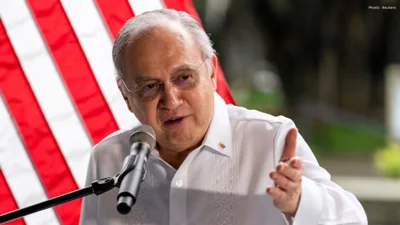
Post by : Mikhael Nasser
Intermittent fasting continues to attract attention from clinicians and the public alike. Among fasting approaches, the 24-hour fast is often recommended for its simplicity and potential metabolic advantages. Advocates point to weight loss, improved metabolic markers, and cellular repair; skeptics caution about safety and sustainability. This analysis reviews physiological effects, potential benefits, and practical precautions.
Below we outline what occurs in the body during a full-day fast, what the evidence indicates, and how to approach this practice responsibly.
A 24-hour fast, called the “Eat-Stop-Eat” approach by some clinicians, involves abstaining from caloric foods for a complete day. For instance, if your last meal is at 7pm, the next eating window opens at 7pm the following day.
During the fasting window, non-caloric beverages — plain water, black coffee, or unsweetened teas — are permitted. The intent is to suspend continuous digestion so the body shifts toward stored energy sources.
Most practitioners adopt this pattern intermittently (once or twice weekly) rather than daily, to limit nutritional gaps and fatigue.
When caloric intake stops, the body undergoes predictable metabolic transitions affecting hormones and fuel use.
4–6 hours after eating: Digestive processes wind down and insulin begins to decline.
10–12 hours after eating: Liver glycogen stores diminish and the body increasingly oxidises fat for energy.
18–24 hours after eating: Lipid metabolism accelerates and cellular maintenance processes such as autophagy are more active, supporting removal of damaged components.
These shifts allow for metabolic resting and cellular housekeeping that do not occur with continuous eating.
When implemented properly, a 24-hour fast can contribute to weight loss by lowering total caloric intake and encouraging the use of fat stores for fuel.
Key mechanisms include:
Calorie deficit: Skipping a full day of eating typically reduces weekly calories.
Enhanced fat oxidation: Reduced circulating insulin facilitates access to stored fat.
Metabolic effects: Short fasting episodes can modestly raise daily energy expenditure in some individuals.
Nonetheless, fasting is not a standalone solution. Compensatory overeating or poor food choices on non-fasting days will negate its advantages.
Research indicates potential benefits of intermittent 24-hour fasting beyond weight control, including:
Glycaemic regulation: Improved insulin sensitivity and steadier glucose profiles in some studies.
Lowered inflammation: Markers of chronic inflammation can decline with periodic fasting.
Cardiovascular markers: Possible reductions in LDL cholesterol and support for healthy blood pressure.
Cognitive alertness: Many report increased mental clarity during fasting windows.
Cellular renewal: Autophagy contributes to cellular maintenance and repair.
The magnitude of these benefits depends on overall diet quality, activity, and individual health status.
Fasting is not risk-free. Unsuitable practice or excessive frequency can cause:
Headache or lightheadedness
Low energy and fatigue
Impaired concentration
Nausea or dizziness
Compensatory overeating post-fast
Certain groups should avoid a full-day fast, including those with diabetes requiring medication, people with hypotension, pregnant or breastfeeding individuals, people with current or past eating-disorder conditions, and anyone on treatments that mandate food intake.
Medical consultation is strongly advised before starting a 24-hour fasting routine, particularly for people with chronic conditions.
To reduce risks and improve tolerability, experts recommend:
Hydration: Keep fluids flowing — water, herbal tea, and plain coffee help maintain balance.
Gradual approach: Begin with shorter fasts (12–16 hours) before attempting a full 24 hours.
Gentle refeeding: Resume eating with nutrient-dense, light meals instead of high-fat or high-sugar foods.
Limit intense exercise: Choose low-intensity activity such as walking or mobility work on fasting days.
Heed symptoms: Stop the fast if you feel unwell and seek medical advice as needed.
The objective of fasting should be improved wellbeing, not extreme restriction.
Medical and nutritional authorities generally regard intermittent 24-hour fasts as a useful tool for some people when combined with balanced nutrition.
Dr. Michael Mosley, known for promoting intermittent fasting, notes:
“Fasting can support glucose regulation and aid weight management, but it must be integrated with a healthy diet.”
Nutritionist Sarah Brewer emphasises:
“Fasting does not suit everyone. Long-term adherence to wholesome dietary habits is more important than strict fasting regimens.”
In short, fasting may be beneficial, but outcomes hinge on broader lifestyle choices.
A thoughtfully applied 24-hour fast can help recalibrate eating patterns, enhance discipline, and contribute to weight loss for many individuals. However, it is not universally appropriate. Careful planning, moderation, and alignment with personal health are essential to make fasting sustainable and safe.
Prioritise gradual adoption, consistent healthy eating on non-fasting days, and professional guidance when needed. The aim should be lasting health improvements rather than rapid fixes.
This content is informational and does not replace professional medical advice. Individuals with medical conditions, diabetes, or a history of disordered eating should consult a qualified healthcare provider before beginning any fasting protocol.










Mattel Revives Masters of the Universe Action Figures Ahead of Film Launch
Mattel is reintroducing Masters of the Universe figures in line with its upcoming film, tapping into

China Executes 11 Members of Criminal Clan Linked to Myanmar Scam
China has executed 11 criminals associated with the Ming family, known for major scams and human tra

US Issues Alarm to Iran as Military Forces Deploy in Gulf Region
With a significant military presence in the Gulf, Trump urges Iran to negotiate a nuclear deal or fa

Copper Prices Reach Unprecedented Highs Amid Geopolitical Turmoil
Copper prices soar to all-time highs as geopolitical tensions and a weakening dollar boost investor

New Zealand Secures First Win Against India, Triumph by 50 Runs
New Zealand won the 4th T20I against India by 50 runs in Vizag. Despite Dube's impressive 65, India